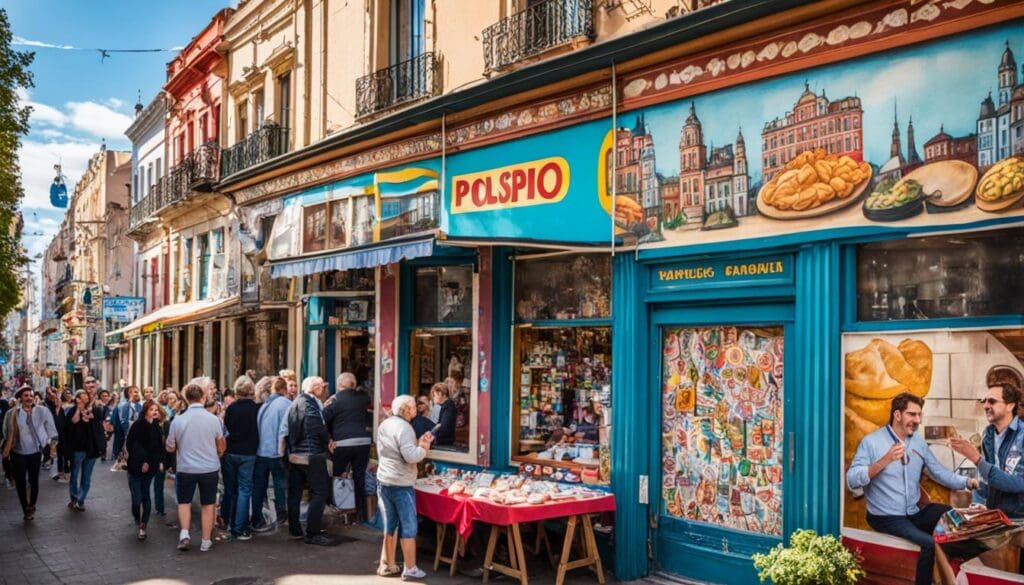Table of Contents
- The History of Polish Immigration in Buenos Aires
- Villa Crespo: Little Warsaw in Buenos Aires
- Polish Immigration and Integration in Buenos Aires
- Polish Cultural Heritage in Buenos Aires
- Poland-Argentina Relationship: Strengthened by Polish Immigration
- Polish Ancestry and Migration Patterns in Argentina
- Preserving Polish Heritage in Argentina
- The Vibrant Polish Community in Buenos Aires
Did you know that Buenos Aires is home to one of the largest Polish communities in South America? The history of Polish immigration in Buenos Aires dates back to the late 19th century, when many Polish people sought better economic opportunities and political stability in Argentina. This immigration wave not only shaped the cultural fabric of Buenos Aires but also created a vibrant neighborhood known as Villa Crespo, affectionately called “Little Warsaw.”
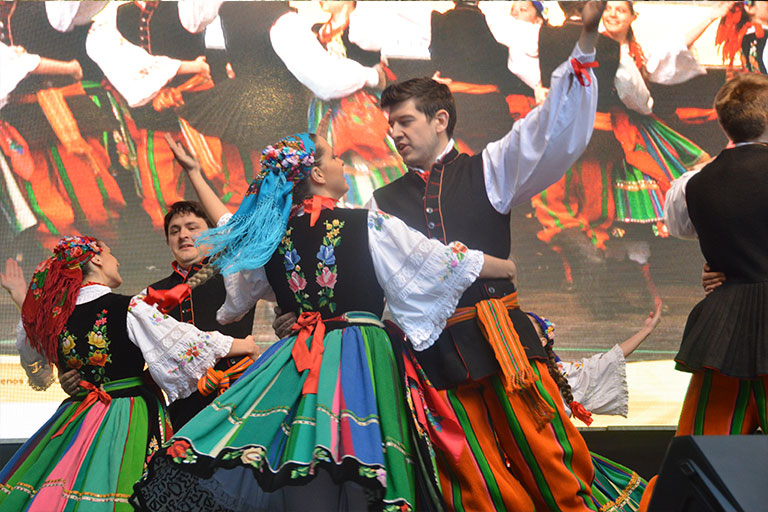

The History of Polish Immigration in Buenos Aires
The history of Polish immigration in Buenos Aires dates back to the late 19th century, when waves of Polish migrants arrived in Argentina, driven by various factors such as poverty, political turmoil, and discrimination in their homeland. These Polish immigrants were drawn to Argentina’s booming economy and the promise of a better life for themselves and their families.
Arriving in Buenos Aires, the Polish community started to establish settlements and form close-knit communities, bringing with them their language, traditions, and cultural practices. This vibrant Polish diaspora in South America has flourished over the years, contributing significantly to the multicultural fabric of Argentina.
The settlement of Poles in Buenos Aires represents a unique chapter in Polish immigration history. The Polish community in Argentina stands as one of the largest in South America, a testament to the enduring connection between Poland and Argentina and the cultural heritage preserved by the Polish diaspora.
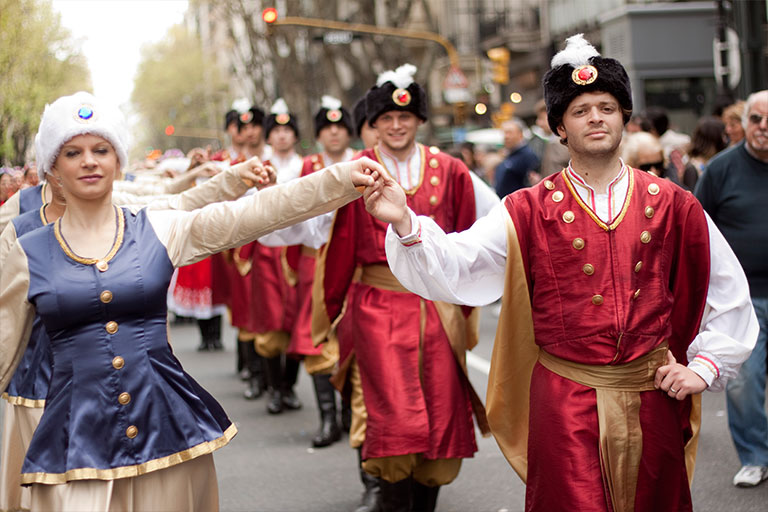

Origins of Polish Immigration in Buenos Aires
The origins of Polish immigration in Buenos Aires can be traced back to the late 19th century, when the political and economic landscape in Poland drove many Poles to seek better opportunities abroad. The influx of Polish immigrants to Buenos Aires surged, especially during the late 1800s and early 1900s, contributing to the demographic growth of the Polish community in Argentina.
These Polish immigrants faced numerous challenges upon their arrival in Buenos Aires, including language barriers and adapting to a new culture. However, they persevered and formed tight-knit communities that supported each other and preserved their Polish identity.
Polish Settlement in Buenos Aires
The Polish settlement in Buenos Aires primarily centered around Villa Crespo, a neighborhood that became known as “Little Warsaw.” This area became a hub of Polish culture, featuring Polish restaurants, businesses, and institutions that catered to the needs of the Polish community.
To this day, the legacy of Polish immigration in Buenos Aires is visible in the architectural influences and cultural events that celebrate Polish heritage. Polish surnames are also prevalent among the Argentine population, reflecting the intermingling of Polish ancestry with the broader Argentine society.
Poland-Argentina Relationship
The history of Polish immigration in Buenos Aires has played a significant role in strengthening the relationship between Poland and Argentina. The Polish community in Argentina maintains strong ties with Poland, fostering cultural exchanges, economic collaborations, and educational programs that further deepen the connection between the two nations.
This enduring bond between Poland and Argentina is a testament to the shared history, heritage, and values that unite the two countries. Polish immigrants and their descendants continue to contribute to the social, cultural, and economic development of Buenos Aires, enriching the city’s diversity and multiculturalism.
| Year | Number of Polish Immigrants |
|---|---|
| 1890 | 1,000 |
| 1900 | 12,000 |
| 1910 | 55,000 |
| 1920 | 100,000 |
| 1930 | 140,000 |
Villa Crespo: Little Warsaw in Buenos Aires
Villa Crespo, a neighborhood in Buenos Aires, is known as “Little Warsaw” due to its large population of Polish immigrants and their descendants. This vibrant community proudly showcases its Polish cultural heritage, creating a unique atmosphere that immerses visitors in the rich traditions of Poland.
- University Spanish Courses in Argentina
- Spanish Lessons in Malaga
- Learn Spanish in Milwaukee
- Profesores de ingles en Malaga
- Profesores de ingles en Buenos Aires
- Learn Spanish in Ottawa
- Spanish Tutor in Toronto
- Learn Spanish Online
- Argentina Study Visa
- Coorporate Spanish Classes
- Learn Spanish in Buenos Aires
The streets of Villa Crespo are lined with Polish restaurants, bakeries, and shops, offering a wide array of traditional Polish cuisine and products. Visitors can indulge in pierogi, kielbasa, and other delicious Polish delicacies while experiencing the warm hospitality of the Polish community.
The architecture of the neighborhood also reflects its Polish roots, with many buildings featuring Polish designs and motifs. The distinctive red brick facades and ornate details pay homage to the traditional Polish aesthetic, creating a visual representation of the community’s cultural identity.
Furthermore, Villa Crespo is home to various cultural organizations and community centers that actively promote Polish language, music, dance, and art. These institutions serve as focal points for preserving and passing down Polish traditions to future generations. Through language schools, workshops, and exhibitions, the Polish community ensures the continuity of their cultural heritage in Buenos Aires.
Whether strolling through the neighborhood, indulging in traditional Polish cuisine, or attending cultural events, visitors to Villa Crespo can immerse themselves in the captivating atmosphere of “Little Warsaw” and witness the vibrant Polish cultural heritage thriving in the heart of Buenos Aires.


Polish Immigration and Integration in Buenos Aires
Polish immigrants in Buenos Aires have faced unique challenges when it comes to integration into Argentine society. Language barriers and cultural differences initially posed difficulties for Polish immigrants to fully integrate into the local community. However, over time, many Polish immigrants have successfully adapted and integrated into Argentine society while preserving their Polish identity.
Despite the initial obstacles, Polish immigrants in Buenos Aires have made significant contributions to the cultural and economic development of the city. Their entrepreneurial spirit and strong work ethic have led to the establishment of Polish businesses, restaurants, and cultural organizations, enriching the diversity of Buenos Aires.
Integration has been facilitated by the presence of a vibrant Polish community, which has created a supportive network for newcomers. Polish immigrants and their descendants have established community centers, language schools, and cultural associations that provide resources and support to promote integration and preserve their Polish heritage.
The Polish community in Buenos Aires actively participates in cultural events and celebrations, showcasing their traditions and customs. Annual festivals, such as the Polish Festival in Villa Crespo, attract locals and tourists, offering a glimpse into Polish music, dance, and cuisine.
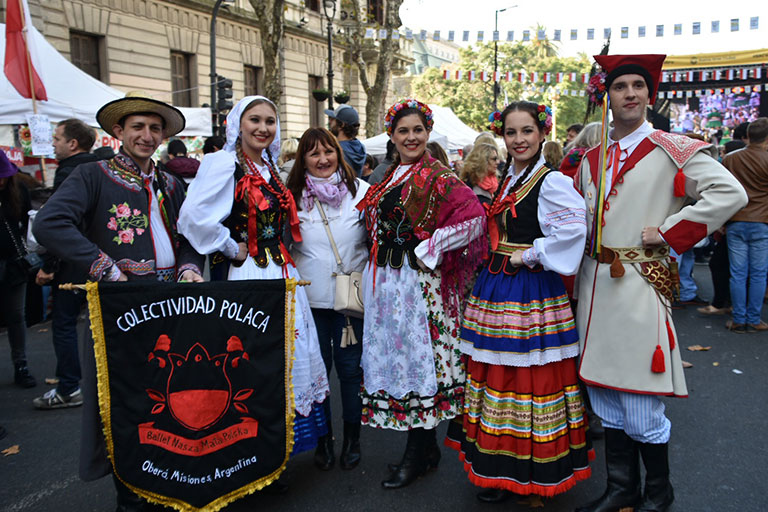

| Challenges | Solutions |
|---|---|
| Language barriers | Language schools offering Polish and Spanish classes |
| Cultural differences | Community centers promoting cultural exchange and understanding |
| Establishing connections | Networking events and community organizations |
The Polish community’s integration efforts in Buenos Aires have fostered a sense of multiculturalism and enriched the social fabric of the city. Polish immigrants have successfully merged their Polish roots with the Argentine way of life, creating a unique blend of cultures.
The Role of Polish Settlements
Polish settlements in Buenos Aires, such as Villa Crespo (Little Warsaw), have played a crucial role in fostering integration. These vibrant communities provide a sense of belonging and shared heritage. They offer Polish restaurants, stores, and cultural spaces that allow Polish immigrants and their descendants to maintain their traditions and connect with like-minded individuals.
By preserving their Polish identity while embracing Argentine culture, Polish immigrants in Buenos Aires have demonstrated the strength and resilience of their community. The integration of Polish immigrants into Argentine society not only benefits individuals but also contributes to the diversity and multiculturalism that define Buenos Aires.
Polish Cultural Heritage in Buenos Aires
The Polish community in Buenos Aires takes immense pride in preserving its rich cultural heritage. Generation after generation, Polish traditions and customs have been passed down, ensuring the continuity of Polish culture in the vibrant city of Buenos Aires.
Cultural organizations, language schools, and community centers play a vital role in promoting and preserving Polish heritage. These institutions provide a platform for individuals to learn the Polish language, appreciate Polish music and dance, and explore Polish art. They serve as pillars of the community, fostering a sense of connection and unity amongst those with Polish ancestry.
One of the highlights of the Polish community’s dedication to preserving their cultural heritage is the annual festivals and events that celebrate Polish culture. These vibrant gatherings showcase traditional Polish cuisine, music, and folk dances, captivating both the Polish community and the wider Argentine audience. They serve as a testament to the enduring spirit of Polish traditions and their significance in the cultural landscape of Buenos Aires.
This commitment to preserving Polish heritage not only strengthens the sense of identity within the Polish community but also fosters a strong bond between Argentina and Poland. It serves as a reminder of the enduring connection between the two countries and the cultural exchange that has taken place throughout history.
Polish Cultural Heritage in Buenos Aires: An Exemplary Festival
One of the most prominent cultural events celebrating the Polish heritage in Buenos Aires is the annual “Polish Heritage Festival.” This highly anticipated festival showcases the diversity and richness of Polish culture through various artistic expressions.
The festival features captivating music performances, traditional Polish dances, and exhibitions highlighting Polish art and crafts. Visitors can also delight in authentic Polish cuisine, making it a true sensory experience. The festival creates a vibrant atmosphere where the Polish community and visitors alike can immerse themselves in the beauty of Polish heritage.
Here is a glimpse of the festival program:
| Date | Event |
|---|---|
| Day 1 | Opening Ceremony: Traditional Polish Folk Dance Showcase |
| Day 2 | Polish Music Concert: Celebrating Polish Classical Composers |
| Day 3 | Art Exhibition: Polish Artists in Buenos Aires |
| Day 4 | Culinary Delights: Polish Food Fair |
| Day 5 | Closing Gala: Grand Polish Dance Party |


Whether you have Polish ancestry or simply want to immerse yourself in the vibrant culture of Buenos Aires, the Polish Heritage Festival is an event not to be missed. It offers a unique opportunity to experience the beauty, traditions, and artistic expressions that make up the diverse Polish cultural heritage in Buenos Aires.
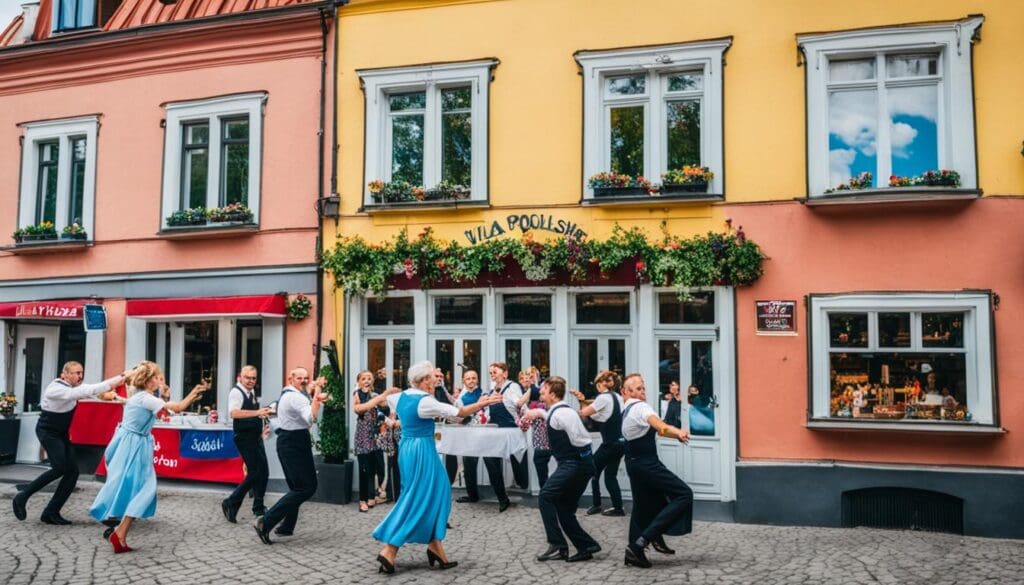

Join us in celebrating the enduring legacy of Polish immigrants and their contributions to the cultural fabric of Buenos Aires!
Poland-Argentina Relationship: Strengthened by Polish Immigration
Polish immigration has played a significant role in strengthening the relationship between Poland and Argentina. The presence of a large Polish community in Buenos Aires has fostered a strong cultural and economic exchange between the two countries.
Cultural initiatives, economic collaborations, and educational programs have been established to promote understanding and cooperation between Argentina and Poland. These initiatives aim to celebrate the shared history and heritage of Polish immigrants in Argentina, creating a strong bond between the two nations.
The Polish diaspora in South America, particularly in Argentina, serves as a bridge between Poland and Argentina, reinforcing the cultural and historical ties. Through their active participation in community events and organizations, Polish immigrants in Buenos Aires contribute to the preservation and promotion of Polish traditions and values.
The Poland-Argentina relationship continues to thrive, enriched by the stories and contributions of Polish immigrants throughout history. This enduring connection is a testament to the resilience and unity that transcends borders, creating a vibrant and mutually beneficial partnership.
| Benefits of Polish Immigration on Poland-Argentina Relationship |
|---|
| 1. Cultural exchange and appreciation |
| 2. Economic collaborations and trade |
| 3. Educational programs and student exchange |
| 4. Strengthened diplomatic ties |
| 5. Increased tourism between the two countries |
Polish Cultural Festivals in Buenos Aires: A Celebration of Heritage
Buenos Aires annually hosts a series of Polish cultural festivals that showcase the rich heritage of the Polish community in Argentina. These festivals provide an opportunity for both locals and visitors to immerse themselves in Polish traditions, music, dance, and cuisine.
Attendees can experience vibrant parades, traditional Polish folk dances, and enjoy delicious Polish dishes such as pierogi and kielbasa. These events foster cultural exchange, allowing the wider community to appreciate and learn more about Polish customs and values.
The Polish cultural festivals contribute to the strengthening of the Poland-Argentina relationship by fostering a deeper understanding and appreciation of Polish culture among the Argentine people. These celebrations serve as a testament to the enduring legacy of Polish immigration in Buenos Aires and the wider Argentine society.
Polish Ancestry and Migration Patterns in Argentina
Polish ancestry holds a significant presence among many Argentinians, with a sizable number of individuals having Polish heritage. The migration patterns of Polish descendants in Argentina exhibit a wide range, with some individuals actively maintaining robust connections to their Polish roots by engaging in Polish cultural activities and organizations. Others may feel less connected to their Polish ancestry yet still harbor a sense of pride in their heritage. As a testament to the enduring influence of Polish immigration, the Polish community in Argentina continues to grow, with Polish descendants actively participating in cultural events and preserving their Polish identity.
Polish Ancestry in Argentina: A Proud Heritage
- Many Argentinians have Polish heritage, reflecting the strong historical ties between Poland and Argentina.
- Polish descendants often emphasize their Polish roots and actively participate in preserving their cultural heritage.
- The Polish community in Argentina is continuously evolving, with new generations embracing their Polish ancestry.
Migration Patterns and Identity
- Some Polish descendants in Argentina actively engage in Polish cultural activities and organizations, promoting the preservation of their cultural heritage.
- Others may have a more distant connection to their Polish ancestry but still maintain a sense of pride and interest in their heritage.
- The Polish community provides a sense of belonging and support for those seeking to explore their Polish roots.
To illustrate the influence of Polish ancestry and migration patterns in Argentina, the following table showcases the estimated number of Polish descendants in the country as of the most recent data available:
| Year | Estimated Number of Polish Descendants in Argentina |
|---|---|
| 2021 | Approximately 500,000 |
| 2015 | Approximately 450,000 |
| 2010 | Approximately 400,000 |
As the table demonstrates, the number of Polish descendants in Argentina continues to grow, highlighting the enduring legacy of Polish immigration and the importance of preserving Polish heritage.
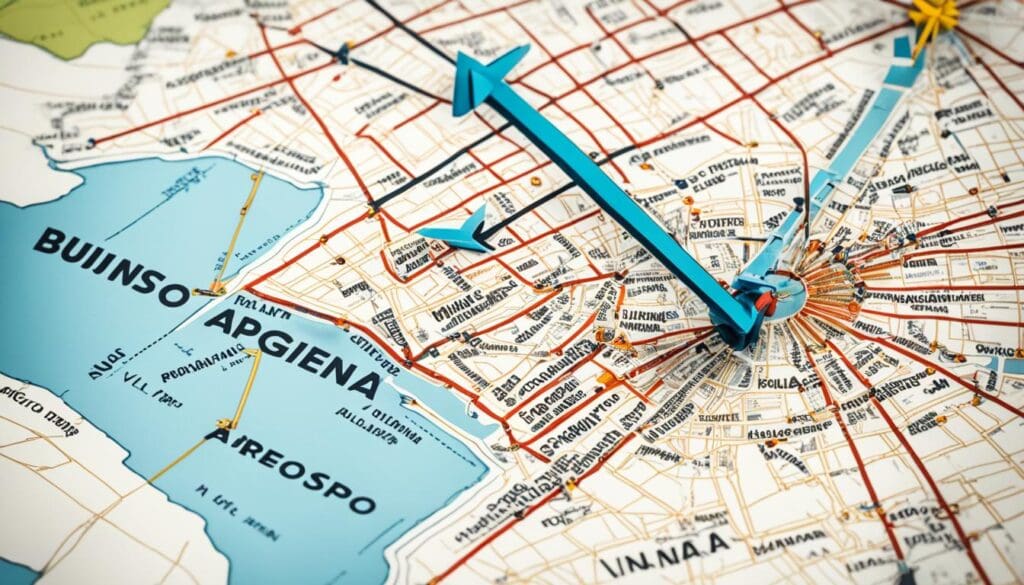

Through cultural preservation and active participation, Polish descendants in Argentina contribute to the vibrant multicultural fabric of the country while proudly celebrating their Polish ancestry.
Preserving Polish Heritage in Argentina
The preservation of Polish heritage in Argentina is of utmost importance to the Polish community. Efforts are made to document and archive the history of Polish immigration, ensuring that the personal stories and records of Polish settlers are not forgotten.
Cultural organizations, museums, and libraries play a vital role in preserving Polish heritage in Argentina. They provide resources and educational programs that promote a deeper understanding of Polish culture and its significance in the country. These institutions actively collect and preserve artifacts, artworks, and historical documents related to Polish immigration, ensuring that future generations can access and learn from them.
One crucial aspect of preserving Polish heritage is the commemoration of significant events and milestones. Annual celebrations and festivals dedicated to Polish culture are organized, creating opportunities for community members and the general public to experience and appreciate Polish traditions, music, dance, and art. These events serve as platforms for cultural exchange and reinforce the importance of Polish cultural heritage in Argentina.
Key Institutions in Preserving Polish Heritage
Several institutions in Argentina are dedicated to the preservation and promotion of Polish heritage:
- Polish Association in Argentina (Asociación Polaca en la Argentina): This organization works tirelessly to promote and preserve Polish culture in Argentina. Through various initiatives and events, they aim to strengthen the bonds between the Polish community and Argentina.
- Museum of the Polish Diaspora (Museo de la Emigración Polaca): Located in Buenos Aires, this museum is dedicated to showcasing the history and contributions of Polish immigrants in Argentina. It features exhibits that highlight different aspects of Polish culture, providing visitors with a deeper understanding of Polish heritage.
- Polish Library in Buenos Aires (Biblioteka Polska w Buenos Aires): This library serves as a hub for Polish literature, language, and education. It houses a vast collection of Polish books and resources, offering a space for community members to come together and engage in Polish cultural activities.
These institutions, along with many others, actively contribute to the preservation and celebration of Polish heritage in Argentina.
To ensure the continuous preservation of Polish heritage, it is essential for future generations to be actively involved and educated about their roots. Polish language schools, cultural classes, and workshops are organized to provide opportunities for younger community members to learn about their heritage and maintain a strong connection to their Polish identity.
The dedication and commitment of the Polish community in Argentina towards their cultural heritage serve as a testament to the enduring legacy of Polish immigration. By actively preserving and promoting Polish heritage, they ensure that the stories and contributions of Polish immigrants continue to inspire and enrich the diverse fabric of Argentine society.
The Vibrant Polish Community in Buenos Aires
The Polish community in Buenos Aires is a testament to the enduring legacy of Polish immigration in Argentina. With a rich history dating back to the late 19th century, the Polish immigrants and their descendants have formed a vibrant and dynamic community that greatly contributes to the social, cultural, and economic fabric of the city.
The Polish community in Buenos Aires is known for its strong sense of identity and close-knit bonds. The community actively participates in cultural events and organizations, preserving and celebrating their Polish cultural heritage. Through their involvement in Polish festivals, language schools, and cultural centers, the Polish community ensures the continuity of their traditions and promotes a deep appreciation for their roots.
The Polish immigrants and their descendants in Buenos Aires have made significant contributions to various sectors. In the field of education, Polish Argentinians have established Polish-language schools that allow future generations to connect with their ancestral language and culture. In business, the entrepreneurial spirit of the Polish community has led to the establishment of numerous successful enterprises, contributing to the economic growth of the city. Moreover, Polish artists, musicians, and academics have significantly enriched the cultural and intellectual landscape of Buenos Aires.
The presence of the Polish community in Buenos Aires adds to the multicultural diversity of the city. It serves as a reminder of the historical ties between Poland and Argentina, and the enduring impact of Polish immigration. The Polish community’s active engagement in promoting their cultural heritage ensures that their traditions and values are cherished and passed down to future generations, preserving the Polish legacy in Buenos Aires for years to come.


Maria Olson
At VAMOS Academy, I craft stories sprinkled with my love for exploration and food. Whether it’s the tang of a local dish or the rhythm of a new dialect, I bring these experiences to you. Ready for an adventure that tickles your taste buds and ignites your wanderlust? Let’s embark on this journey together, one story and one bite at a time.



